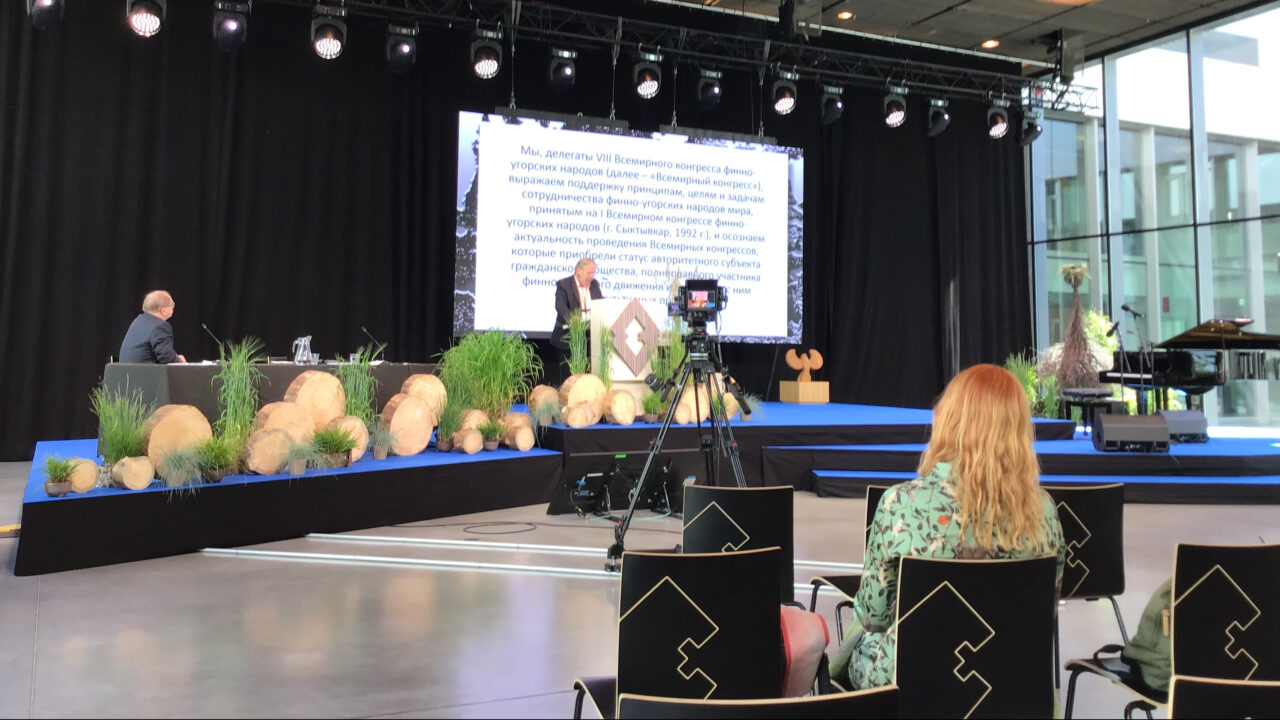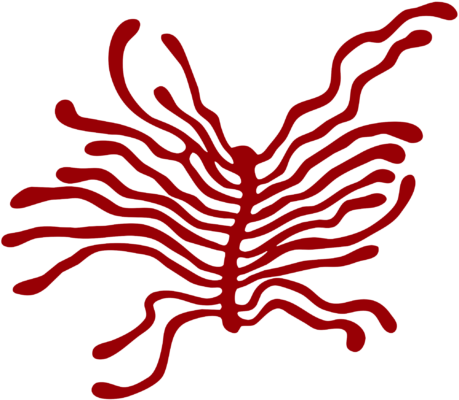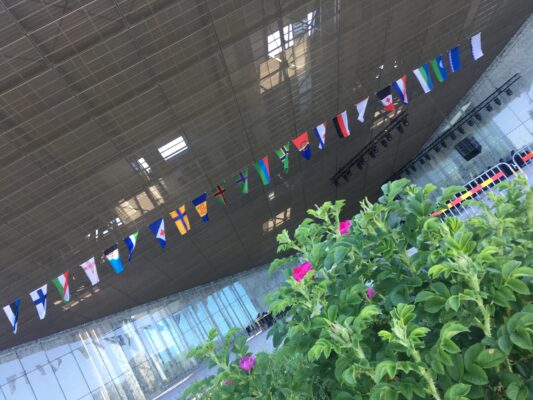Resolution of the VIII World Congress of Finno-Ugric Peoples
The World Congress declares that the commitment to human rights, national minorities and indigenous peoples, freedom of speech, dignified development of languages and traditional culture, mutual respect between peoples and countries remain key guidelines in the activities of the Consultative Committee and the World Congress.

We, the delegates of the VIII World Congress of Finno-Ugric Peoples (hereinafter – the “World Congress”), express our support for the principles, aims and objectives of cooperation between the Finno-Ugric peoples of the world, adopted at the I World Congress of Finno-Ugric Peoples (Syktyvkar, 1992), and acknowledge the relevance of holding the World Congresses, which have acquired the status of an authoritative actor in civil society, a full-fledged participant in the Finno-Ugric movement and related socio-cultural processes.
The World Congress positively assesses the position of scientists who have proved the kinship of the peoples of the Finno-Ugric and Samoyed groups.
We recognize the important role of the World Congress and the Consultative Committee of the Finno-Ugric Peoples (hereinafter referred to as the “Consultative Committee”) in supporting and developing effective cooperation between the Finno-Ugric and Samoyed peoples across political borders, which has been going on for many decades and will continue in the future. It should be noted that the Consultative Committee and the World Congress are also significant instruments for supporting transboundary peoples and their fruitful cooperation.
The Consultative Committee successfully supports representatives of the Finno-Ugric and Samoyed peoples of the socio-cultural region “Russian Federation, Eastern Europe, Transcaucasia and Central Asia” at various high-level international platforms. The Consultative Committee actively participated in two UN working groups: on the finalization of the Declaration on the Rights of Indigenous Peoples (1995-2000) and on the establishment of the UN Permanent Forum on Indigenous Issues (UN PFII).
The World Congress has become a platform for the international community to understand the problems of Hungarians living on their native lands in the neighbouring states of Hungary. The admission of the Setos to the Consultative Committee was a significant support for the international recognition of the Setos as a people. The active position of the Consultative Committee helped to draw attention to the Livonian issues in Latvia.
The World Congress notes that thanks to the experience gained and constructive work in the Consultative Committee, its members intensified in the regions the work on the development and adoption of laws in the field of the rights of indigenous peoples, contributed to the creation of centres of national culture and craft, the Finno-Ugric cultural centre of the Russian Federation, gave a new impulse for the creation and further activities of scientific, educational, creative associations, organizations of traditional economic activities of indigenous peoples, the development of a network of public organizations of the Finno-Ugric and Samoyed peoples.
The World Congress declares that the commitment to human rights, national minorities and indigenous peoples, freedom of speech, dignified development of languages and traditional culture, mutual respect between peoples and countries remain key guidelines in the activities of the Consultative Committee and the World Congress.
The World Congress supports the diversity of forms of intercultural cooperation of the Finno-Ugric and Samoyed peoples, civil society institutions, government bodies, the academic community in order to ensure peace, prosperity and sustainable development, including the preservation of a favourable environment for the contemporary representatives of our peoples and for future generations.
The World Congress welcomes the holding of constructive discussions on both traditional and newly created platforms, the organization of which is aimed at supporting mutual understanding and developing cultural ties. The participation of representatives of our peoples in them contributes to the strengthening of the Finno-Ugric movement.
We acknowledge Finno-Ugric Capitals of Culture as a good and sustainable practice of Finno-Ugric cooperation, contributing to the development of both the settlements, which have carried the cultural capital title, as well as the entire local community. We call on representatives of states and local communities to participate actively in the continuation of this cultural cooperation programme.
The VIII World Congress of Finno-Ugric Peoples, the theme of which was “Cultural Landscapes – Mind and Language“ expresses full support for the International Decade of Indigenous Languages 2022-2032, proclaimed by the UN General Assembly Resolution (A / 74/396, 12/18/2019). The Consultative Committee works closely with UNESCO in preparation for the International Decade of Indigenous Languages. Since 2020, focusing on the rights of native speakers among indigenous peoples, acknowledging that each nation as a native speaker of a language and culture is unique and requires the same unique approach for solving linguistic issues, we got involved in the formation of the Global Plan of Action and the development of practical solutions.
The World Congress calls on states to adhere to generally accepted standards for the use of languages of national minorities in places of their historical residence.
All recommendations of the working groups of the VIII World Congress of Finno-Ugric Peoples are an integral part of this Resolution.
Tartu, Estonia, 18. VI 2021
All recommendations of the working groups:
- Section No 1
- Section No 2
- Section No 3
- Section No 4


